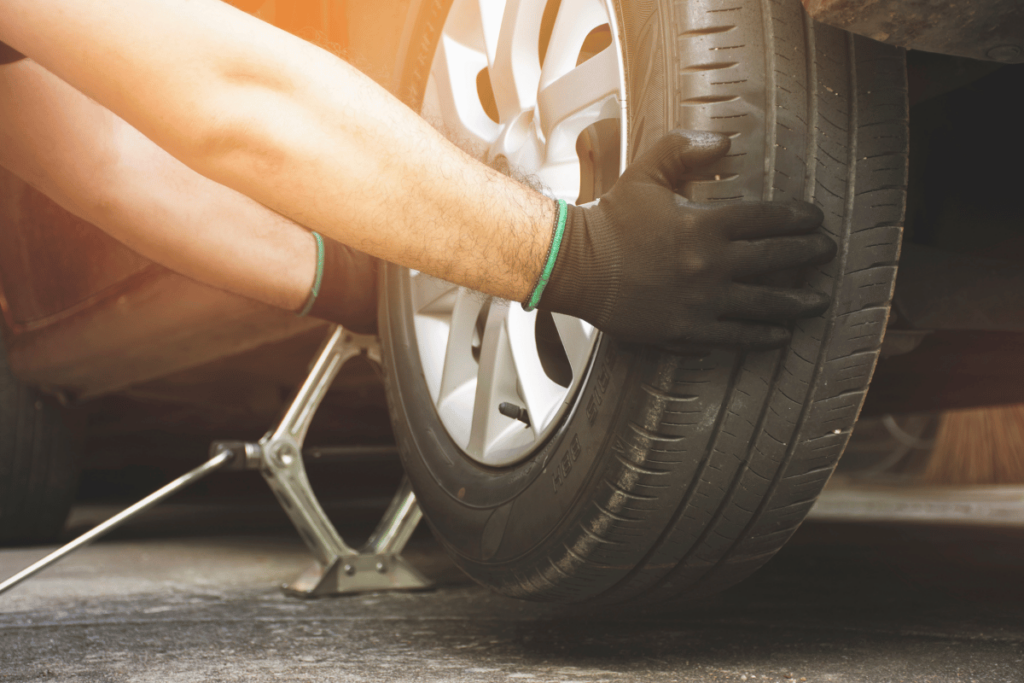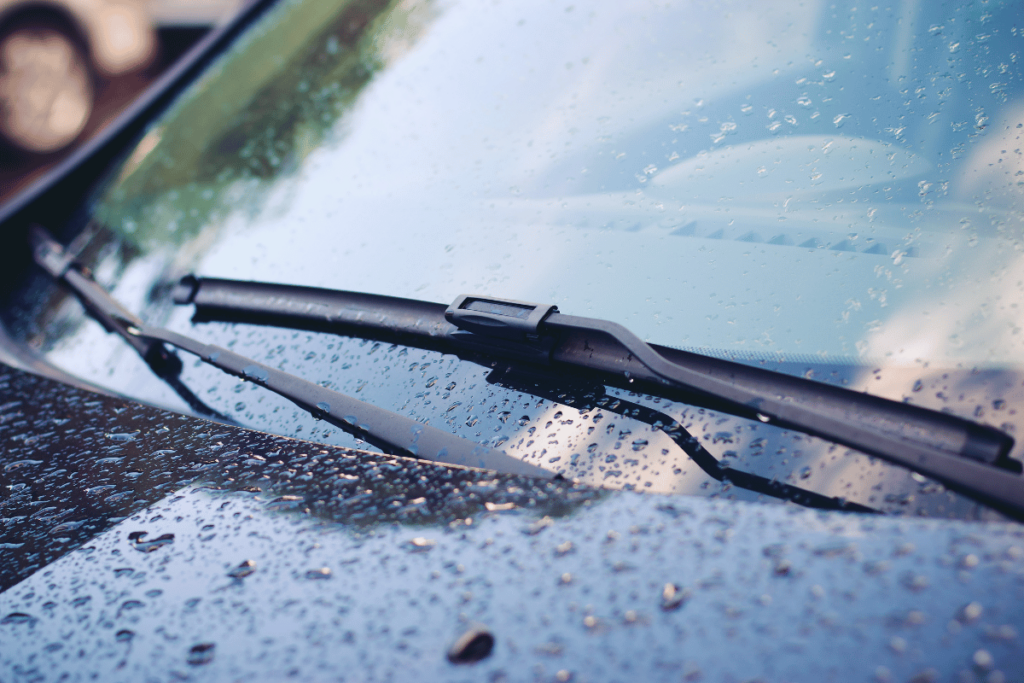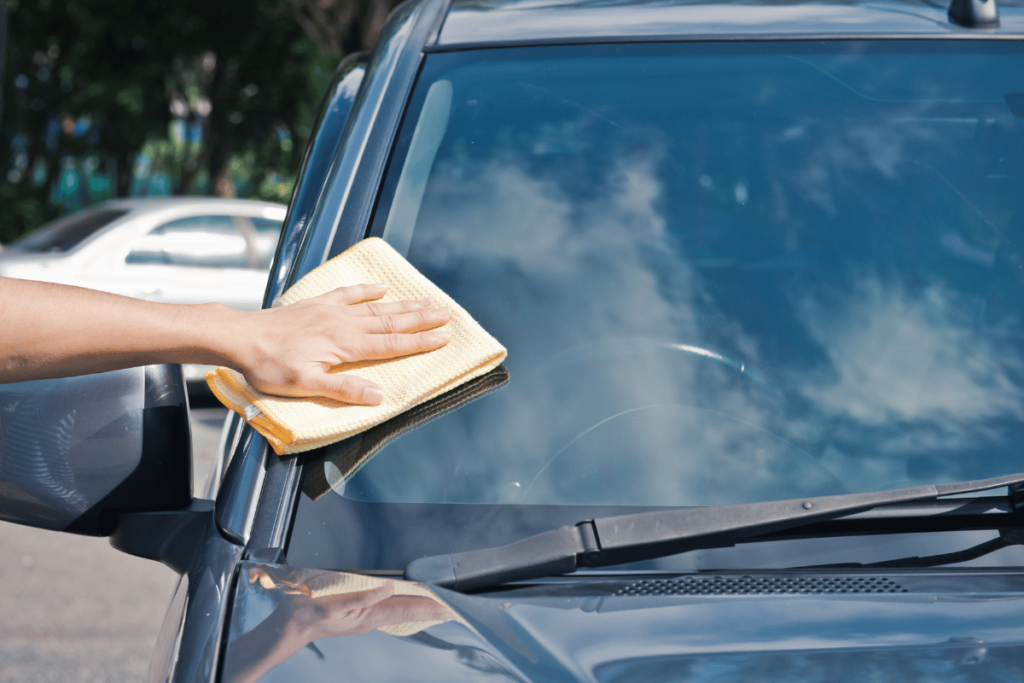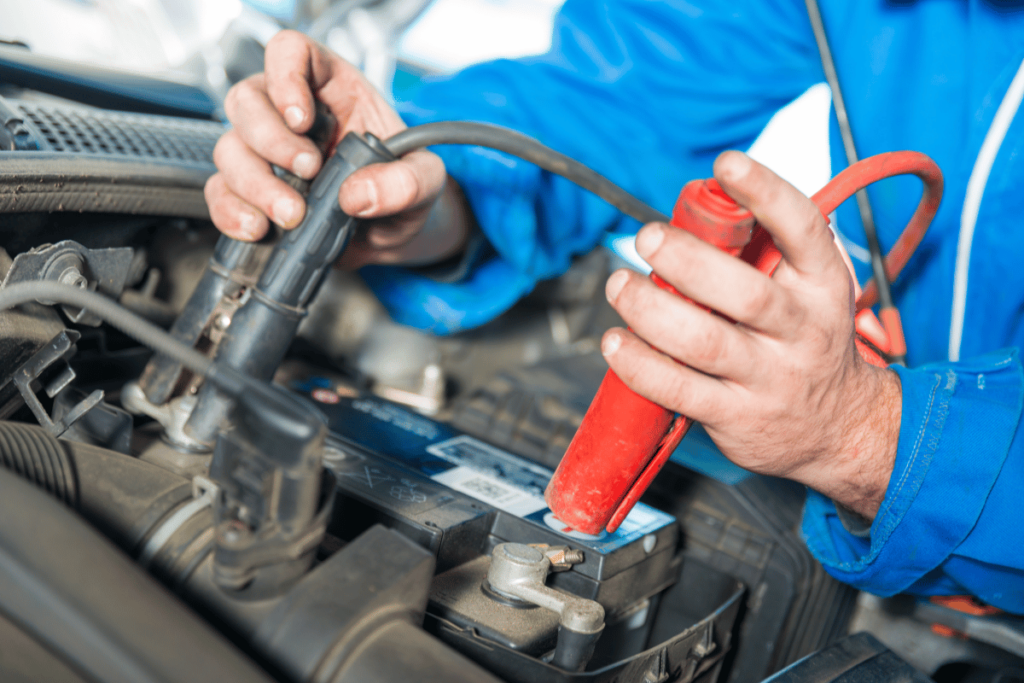8 Essential Car Care Tips for the Rainy Season
With the rainy season comes ‘sweater weather’, extra cups of hot chocolate and a bit of anxiety for the safety of our cars.
Besides regular maintenance, these handy car care tips for the rainy season can help prevent problems and keep your car running smoothly in these rough weather conditions.
Read More:
- A Tree Fell On My Car: Can I Make An Insurance or Takaful Claim?
- Your Complete Guide to Road Accident Management in Malaysia
- 8 Tips for First-Time Car Buyers in Malaysia
- 7 Signs You Need A New Car To Replace Your Current One
8 Car Care Tips for the Rainy Season
1. Check and Maintain Your Car Tires

Just like us, our cars are made out of complex systems. However, while we can take care of ourselves, our cars need hands-on love and care to ensure that they are in their best shape on the road, especially during the rainy season.
One of the most essential maintenance tips for cars during the monsoon season is to check on your car’s tires. This is a crucial step to prevent road accidents.
To ensure your tires are ready to hit the road, take the time to look at the tread depth of your tires. Tires with deep treads have better friction, ensuring better grip on the road.
As your tires get worn out, the depth reduces making them slippery and increasing the risk of losing control of your car.
Besides that, check your tires inflation pressure to ensure they are sufficiently inflated to, keep the car balanced and stable, especially during the rainy season.
2. Check Your Windshield Wipers

When driving through heavy rain, the first thing that comes to mind would be to turn on the windshield wipers.
But what if your wipers suddenly stop working? A blurry window while driving can escalate your anxiety, impair your vision and drastically increase the risk of road accidents.
An important car care tip for the rainy season is to always ensure your wipers are in tip-top condition. Check the rubber blades of your wipers for wear and tear or cracks on its surface.
If worn out or damaged, opt to replace them immediately, especially during this rainy season. If your budget allows, look for higher quality blades that are likely to last longer and withstand hard weather and long-term use.
3. Clean Your Windows and Windshield

This is a simple car care tip, yet many of us forget to do it.
It is essential to regularly clean your car windows and windshields so that nothing obstructs your view.
Besides maintaining a regular cleaning schedule and using basic car wash tools, using rain-repellent products is a great way to go the extra mile to prevent dirt from sticking on your car windshield during the monsoon season.
4. Park in Shaded Areas
A simple to-do would be to park your car in shaded areas to keep your car clean during the rainy season.
You wouldn’t want leaves, twigs or dirt to fall onto your car because of strong winds. Not only would this dirty your vehicle, but they can get in the crevices and clog up vital operating parts of your system.
Say no to unnecessary mess, take precautions and avoid parking in open areas.
5. Inspect Your Car Battery

The last thing you would want is for your car battery to fail on you during stormy weather, leaving you stranded by the roadside for hours.
Be sure to regularly check the age of your car battery; traditional car batteries typically last between 1 to 3 years, depending on your driving frequency and car model.
Going by age is an easy way to know when to replace your car battery or you can pop by your car workshop and have them test the strength of your battery.
If you’re worried about your battery failing while you’re on the go, Etiqa has a 24/7 towing and breakdown assistance hotline that can help you jump-start and replace your car battery.
6. Check Your Car Headlights

When the weather gets gloomy and the downpour is steady, bright headlights are your rescue. Not only are they essential to help with visibility when it rains, but they also allow other drivers on the road to notice your vehicle, preventing accidents.
But, how do you know if your headlights are in perfect working condition?
When you turn on your car lights, take note of any flickering or dimness. If so, it might be time to change your light bulbs or take your car to the workshop.
Headlights can also weaken during the rainy season because of condensation that happens inside the headlight cover which eventually weakens its brightness.
So, be sure to pay attention to your headlights throughout the rainy season!
7. Inspect Your Car Brakes
A simple way to ensure your car brakes are in perfect working condition is to visually inspect the brake pads for wear and tear. The brake pads should have a thickness of at least 1/4 inch.
Additionally, listen for odd sounds when you hit the brakes and pay attention to any irregularities. A common tell-tale sign that your brake pads need changing is a squeaking or squealing sound that occurs when you press the brakes.
It goes without saying that your braking system is one of the most important components of your car on a regular day. Through the rainy season, it’s even more crucial so don’t skip maintenance and get your brake system checked regularly.
8. Avoid Parking Near Big Trees
Every rainy season brings news of fallen trees in housing areas, along the highways and in other common areas.
It is best to avoid parking your car under or near trees as strong winds can cause branches or trees to fall on your car. However, if this unfortunate incident does happen to you, approach your car protection company to understand how to make a claim.
Some of these rainy season car care tips may seem common and obvious yet are often taken for granted. So if you must hit the road, take time to check everything twice and have a smooth and safe drive. Though, if you can avoid going out, we hear curling up with a warm cup of coffee, a good book or a Netflix show is the ideal way to spend a rainy day indoors.
The information contained in this blog is provided for informational purposes only. It should not be construed as advice on any matter. Etiqa accepts no responsibility for loss which may arise from reliance on information contained in the article. This information is correct as of 9th February 2023.
Sources:
